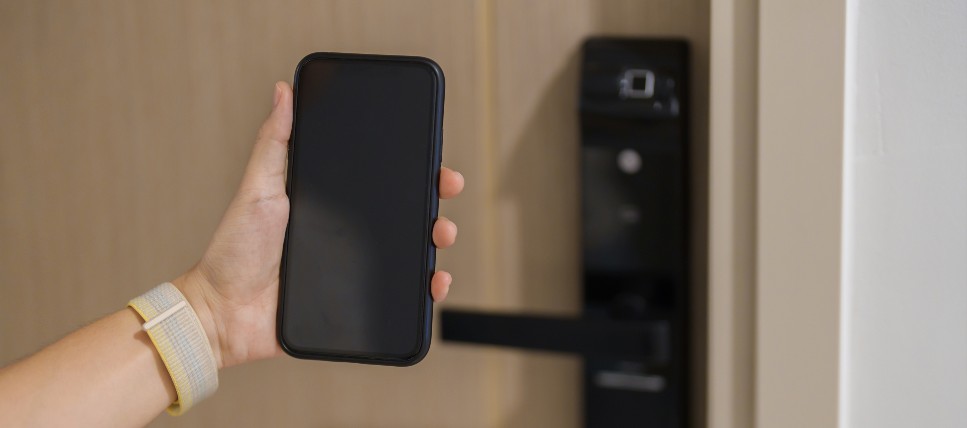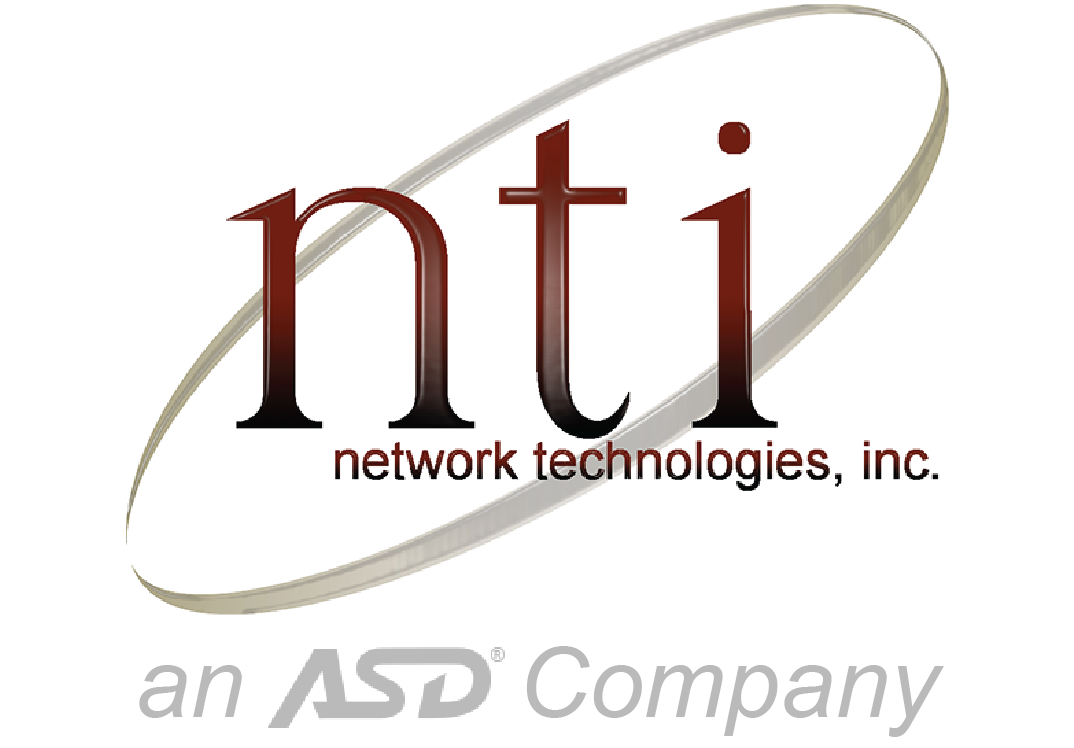New technologies are defining the hospitality industry. Increasingly, hoteliers are looking for new innovations to help their brands stand out and enhance customer service. In fact, 30% of Hotel IT budgets are being allocated for new implementations, according to a recent Hospitality Technology study.
Innovative tech gives businesses a competitive advantage by providing better customer experiences, streamlining operations, and enhancing the brand. Keep reading to learn more about the top hospitality technology trends that are revolutionizing the market.
Tech Trends in Hospitality
Modern hotel technology encompasses a wide range of IT, hardware, and software solutions. You’ll notice many of these trends overlap, with certain technologies falling into multiple categories. This only reinforces how important and connected these systems need to be.
- Expanded Bandwidth
- Internet of Things (IoT)
- Keyless Access Control
- Touchless Technology
- Technology Lounges
- High-Tech Conference Spaces
- Location-Based Services
- Predictive Maintenance
1. Expanded Bandwidth
The more devices in a space, the greater the bandwidth needed to support them. People expect high-speed WiFi on their mobile devices, laptops, and tablets. Plus, they’ll want to stream shows, play video games, and attend video conferences on your hotel’s network.
On top of guest service technologies, smart hotel sensors, customer management systems, and devices also use up bandwidth.
Bad WiFi can be, and is, a dealbreaker for many people. Having the internal infrastructure is essential to supporting and powering all of these devices, which in turn provides a positive end-user experience. Experienced technology consultants can map, design, and install a backbone that supports a growing network.
What’s difficult for hotels to address, however, is the fact that many are at the mercy of their carriers’ external bandwidth. Internet providers are making strides in replacing copper cables and T1/DS3 connections with fiber cables that can accommodate nearly unlimited bandwidths. In anticipation, hotels need to ensure their internal infrastructure is up to par.
2. Internet of Things (IoT)
The Internet of Things refers to a system of integrated sensors, software, and devices that transfer data over wireless networks. In the hospitality industry, these devices track customer behaviors, lower energy consumption, and collect valuable data. Many leverage artificial intelligence (AI) to analyze data sets and extract valuable insights to offer highly personalized recommendations.
In hotel rooms, IoT devices give individuals control of their surroundings and help personalize guest experiences. When a guest checks in, the front desk can trigger their room’s temperature, lighting, and blinds to adjust, and display a welcome message on the television. Automating room controls gives power to the guests and reduces unnecessary energy consumption. Some hotels even enable guests to use voice-controlled devices to order room service or get help from the front desk.
IoT isn’t limited to guest rooms, though. Smart energy management systems use IoT devices and AI to analyze thermodynamics, weather patterns, and peak demand loads to optimize energy consumption in real-time. It can also use daylight harvesting and occupancy patterns to reduce costs and energy usage further. The possibilities are endless!
3. Keyless Access Control
Important players in the hospitality industry, like Marriott and Hilton, are implementing keyless entry technologies. It’s quickly becoming a leading hotel technology trend, and the ASD team is working with multiple facilities to implement these systems.
Mobile room keys are an alternative to physical key cards. Keyless entry reduces the time spent at the front desk and minimizes the costs and environmental impacts of printing new keys and replacing lost ones. Guests use a mobile app on their smartphone to gain secure access to their hotel rooms and other areas, such as the pool or gym.
In the future, AI may be leveraged to offer biometric entry. However, hotels and customers alike are concerned about the use of biometric data and are generally hesitant to adopt the technology, especially when their smartphones can achieve the same results with less intrusion.
RELATED: Access Control & Surveillance Purchasing Guidebook
4. Touchless Technology
The COVID-19 pandemic ushered in a trend that was already emerging: touchless technology. Hotels need to consider how guests interact with amenities to provide a safer and more seamless experience by reducing the number of high-traffic touchpoints. Examples include motion sensors, voice-activated devices, mobile payment options, and digital room keys.
Mobile check-in kiosks were once considered but have generally not been adopted. Hotels thrive on creating personalized, human connections. As such, kiosks have mostly been relegated to a hotel’s marketplace where guests can get food or beverages and have the items charged to their rooms.
5. Technology Lounges
Hotels are places for personal and professional trips. Nowadays, the lines are often blurred between the two. Technology lounges provide guests with an extra amenity to access Wi-Fi, get work done, and get out of their rooms. Because nearly all guests have their own devices, the traditional business center that had a public computer and printer is generally being replaced with technology lounges.
Lounges typically serve as small conference rooms with a video display and connectivity for three to four people to collaborate without having to rent a meeting room.
6. High-Tech Conference Spaces
Modern conferences run on technology, with multimedia presentations, stage lighting, quality sound, and simulcast video conferencing. If businesses are going to use hotel meeting spaces, they expect top-notch amenities and a painless experience.
Ahem, we’re looking at you, AV.
Meeting spaces that need an engineer to get the AV system to work don’t cut it anymore. Whether it’s a board meeting or a conference with hundreds of people, organizers want advanced technology that’s intuitive and user-friendly. In smaller meeting rooms, this means projectors, speakers, and other audio-visual equipment that anyone can connect to from their laptops. In large ballrooms, this means concealed pathways, adequate power, and data connectivity. Other considerations include having enough outlets and secure Wi-Fi for vendors and booth displays.
While a hotel might not be able to hand total control of an AV system over to a guest, it needs to be user-friendly enough that a banquet manager or other hotel employee can get it to work with the touch of a few buttons and minimal training.
7. Location-Based Services
Helping guests and hotel staff understand where they are located in real-time opens the door to a world of opportunities. It allows staff to service guests wherever they are on the property, helps turn over rooms more efficiently, and more.
This can also encompass digital wayfinding and beacon technology. These solutions give turn-by-turn directions to amenities, rooms, tourist attractions, parking lots, and other areas. Digital signage along the way can also project relevant information and ads.
There’s generally a dividing line in the type of facility that deploys location-based services, however. A Las Vegas resort or a hotel located in a theme park or tourist area can find greater benefits from these types of technologies whereas a standalone facility may be able to get by with traditional wayfinding signage.
8. Predictive Maintenance
Tied to IoT technology is smart energy management systems that help hoteliers optimize energy consumption. Systems are “intelligent” and can determine when there’s a problem. Is an air conditioning unit malfunctioning? A sensor can pinpoint the issue. Is a soft drink dispenser in the restaurant running out of syrup? It will tell you.
Predictive maintenance, however, takes it further by identifying wasteful trends and alerting staff to issues. The system can monitor waterlines, HVAC, and more through usage trends and environmental sensors. It uses this information to determine when a system needs maintenance to prevent failure.
The key to new technology is being proactive, not reactive. Identifying and fixing problems before they escalate can save hotels a lot of money. Costs associated with damages (like a busted water pipe or leaky toilet), interruptions to operations, and disrupting guests can be avoided.
Modern Hospitality Technology Challenges
The hospitality industry is at the precipice of change, but it may experience growing pains. Networks and cabling must be updated to accommodate more robust technology and ever-growing bandwidth demands.
An equal challenge is configuring all these disparate systems to talk with each other. A high-tech HVAC system, for example, may be managed by a third-party vendor, yet it needs to integrate with a hotel’s property management system (PMS) to alert the system’s IoT devices to adjust temperatures in a room. A housekeeper may need to log into that same PMS to know which rooms to clean but must have restrictions to ensure they can’t access credit card numbers.
Nearly all modern technologies collect user data, and it needs to be protected. To help enhance security, it’s important to work with technology integrators that are collaborative. An advantage of working with a provider like ASD is that our team aligns with other technology providers to ensure cohesive designs and infrastructures that complement each other. We seek and deliver solutions together and continue to collaborate after implementation to ensure ongoing success.
Deploying these and other emerging technologies can give you the edge needed to stay competitive in the industry. Contact our team of hospitality technology experts today to talk through your needs. Also be sure to check out our helpful Access Control & Surveillance Purchasing Guidebook below.



Leave a Comment